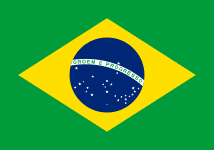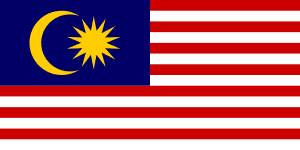- Industry
- Region
- Country / Region
On July 28, 2024, the Bahrain Telecommunications Regulatory Authority (TRA) issued an announcement to allow the use of next-generation Wi-Fi 7 products. This announcement follows TRA's updated technical specifications for Wi-Fi 6 and Wi-Fi 6E earlier this year.
Click this link to view the original announcement.
On July 25, 2024, Minister of Ministry of Communications and Informatics (KOMINFO) issued Nomor 352 Tahun 2024 on technical standards for telecommunications and/or mobile telecommunications equipment based on the Long Term Evolution Technical Standard and the International Mobile Telecommunications 2020 standard. This new regulation provides the following additional frequency bands for smartphones and other devices with WWAN capabilities supported by WWAN base stations:
- LTE: subscriber stations and base stations B28 and B31; Repeaters: B1, B3, B5, B8, B28, B31 (without B40);
- 5G subscriber stations and base stations: FR1 (n28), FR2 (n258).
Click on this link to view Nomor 352 Tahun 2024.
Following the announcement of the Infocomm Media Development Authority (IMDA) of Singapore on 26 July 2023 on the gradual withdrawal of 3G networks from 31 July 2024, IMDA announced the progress of the relevant decommissioning on 24 July 2024:
- Operator M1 has migrated all users to 4G/5G networks, and will gradually complete the retirement of 3G network equipment from August 1, 2024. Other operators will gradually retire their 3G networks from November 2024.
- IMDA will stop importing or selling mobile devices up to 3G starting in February 2025.
Click on this link to view the original IMDA announcement.
Innovation, Science and Economic Development (ISED) of Canada held a public consultation on February 27, 2024 on the radio standard specification RSS-133 Issue 7 "Personal communication service devices operating in the bands 1850-1915 MHz and 1930-1995 MHz". On July 24, 2024, ISED officially released RSS-133 Issue 7. Updates to this release include increased maximum radiated power requirements for fixed stations, base stations, and user equipment, as well as total radiated power requirements for active antenna system (AAS) equipment and unwanted emissions, as well as editorial modifications, clarifications, and other editorial updates to the specification. Like other ISED standards, the standard provides for a 6-month transition period.
Click this link to view the original specification.
On July 19, 2024, the National Centre for Communications Security (NCCS) of India issued a notice announcing the commencement of mandatory security certification (MSC) for 5G Session Management Functions (SMFs) from January 1, 2025.
The 5G SMF voluntary security certification, which will take effect from June 1, 2024, will end on December 31, 2024.
Click this link to view the original notification.
On July 17, 2024, the Telecommunications Regulatory Authority of Oman (TRA) issued an official announcement with the following key changes:
- There will be a significant 150% increase in the cost of certification;
- The validity period of the certificate will also be reduced from an indefinite period to four years. This change will also affect certificates of accreditation issued prior to this announcement, and the four-year period will begin on the date of issuance;
- There is also a corresponding update to the label according to the above update, and the label will contain a QR code. The specific examples are as follows:

The TRA will implement new regulations from August 21, 2024. Click this link to view the original announcement.
On July 12, 2024, the National Telecommunications Agency of Brazil (ANATEL) launched a public consultation on restricting the certification of devices that only support 3G or lower, with the following main contents:
- In the annex to the Ato Decree of June 12, 2020, new requirements numbered 4.4 and 4.5 were added to the annex, with clause 4.4 prohibiting the authentication of modules or terminal devices up to 3G, and clause 4.5 requiring that voice-enabled modules or terminal devices must support VoLTE technology
- In the annex to the Ato 3152 Decree of June 13, 2020, new requirements numbered 4.5 and 4.6 were added, with Article 4.5 prohibiting the certification of mobile phones up to 3G and Article 4.6 requiring that mobile phones must support VoLTE technology
- For automotive components, modules or end devices that support up to 3G can still be certified;
- The original certified devices that support up to 3G will continue to be valid.
Click on this link to view the original public consultation, Comments are open until 19 September 2024.
On July 12, 2024, the Eurasian Economic Commission (EEC) of the Eurasian Economic Union issued Decision No. 79 amending the EMC List of Technical Regulations and Standards (TR CU 020/2011). Changes to the list include the updated standard for multimedia equipment, GOST CISPR 35-2019, which will replace GOST EN 55020-2016. The transition period for the above two standards will run until July 1, 2025. In addition, the standard GOST EN 50557-2018 only applies until August 1, 2024. The decision will take effect 180 calendar days after the date of publication, i.e., on January 8, 2025.
Click on this link to view the original EEC Decision 79.
On 11 July 2024, the Communications and Multimedia Commission of Malaysia (MCMC) announced that the interim type approval for IPv6 cellular devices (excluding devices with WiFi interface or IPv6 devices using other media (e.g. fibre, Ethernet LAN) has been extended for another year, effective from 10 July 2024, until further notice. This means that new Certificate of Conformity (CoC) applications and renewals are allowed, with a maximum validity period of one year.
During this provisional approval period, the applicant may take the required tests at any accredited or approved laboratory and submit a test report for evaluation by SIRIM. If IPv6 on the cellular interface or other media fully meets the technical requirements, it will be formally approved.
Click this link to view the original MCMC announcement.
The public consultation conducted on April 25, 2024 ended on June 25, 2024, and on July 8, 2024, the Ministry of Information and Communications of Vietnam again solicited comments on the draft QCVN 134:2024/BTTTT technical regulation and the draft corresponding regulatory announcement. The draft technical regulations specify limits and methods for measuring the specific absorption rate (SAR) of mobile phones. The regulations will apply to entities engaged in the manufacture, import, trade and operation of mobile phones in Vietnam. Technical regulations ensure that products meet safety requirements and specify SAR test procedures, including rapid SAR test methods.
The notice will come into force on July 1, 2025 and will be mandatory on July 1, 2026.
Click on this link to view the original MIC public consultation.








